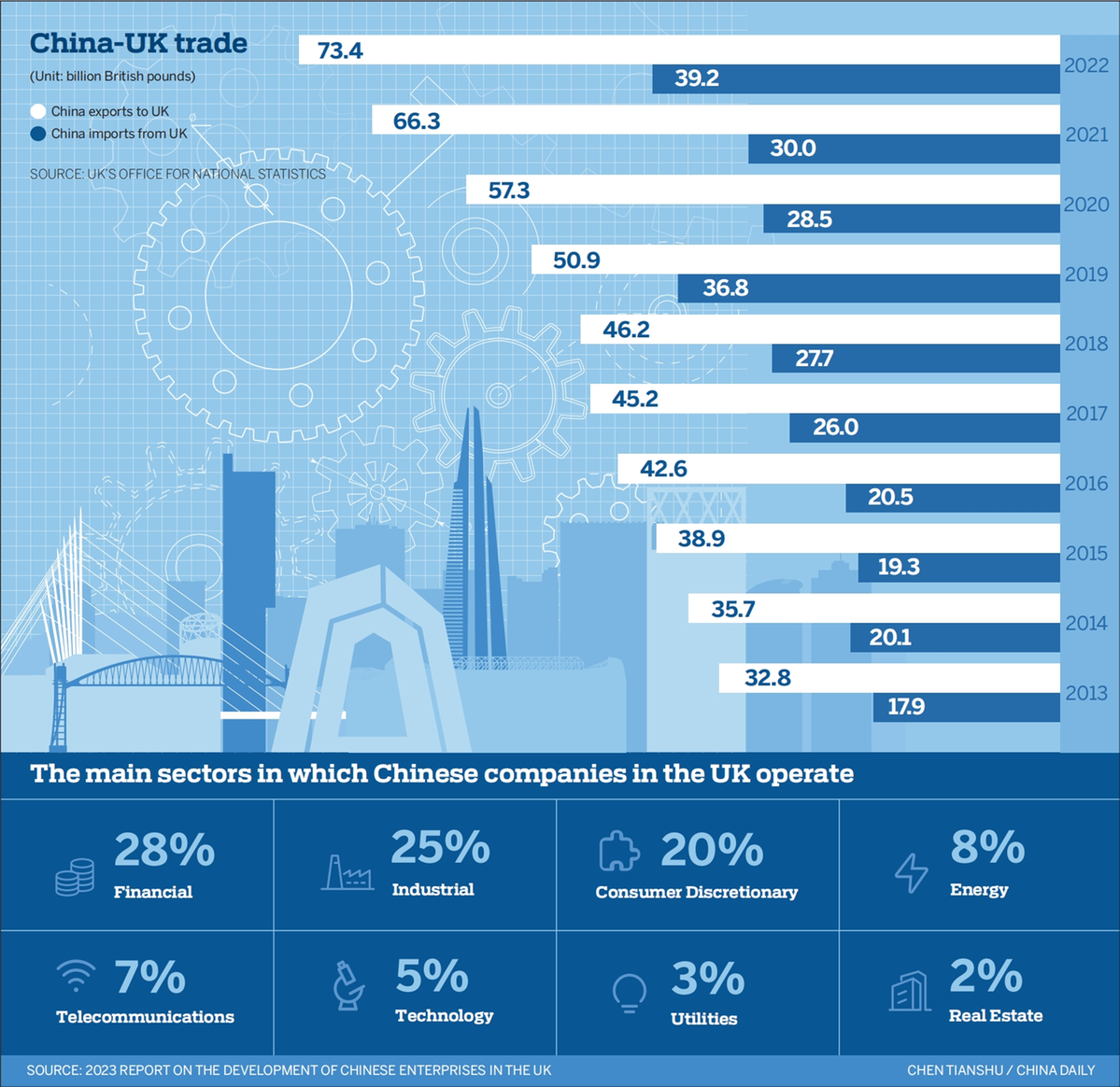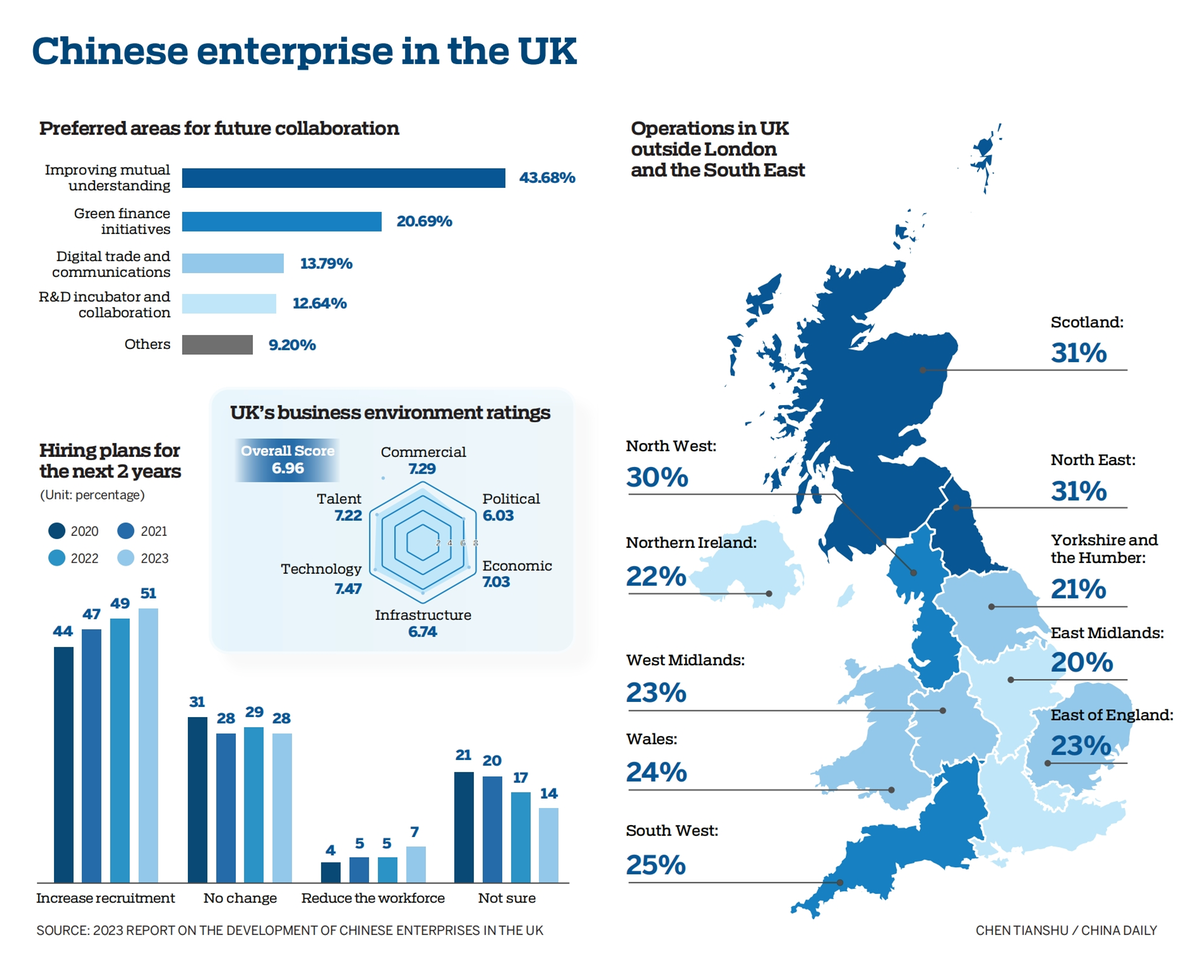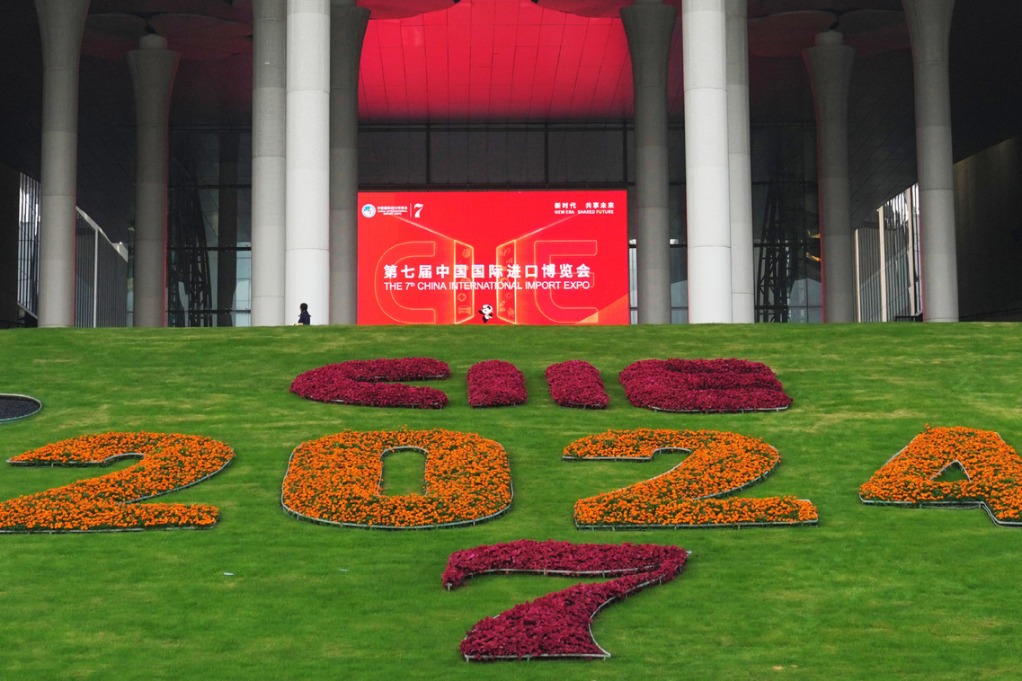Barriers falling, cooperation continuing


Seventy years after icebreaking mission and a decade on from the start of BRI, business collaboration still strong between China and the United Kingdom
This year marks not only the 70th anniversary of the "icebreaking mission" that initiated several decades of profitable economic cooperation between China and the United Kingdom but also the 10th anniversary of the launch of the China-proposed Belt and Road Initiative, a project that has improved global connectivity, boosted trade, and stimulated economic growth.
The commonality of the two is that both break down barriers, be they physical or ideological, promote cooperation, and bring people with differences together to collaborate for mutual benefits.
Stephen Perry, chairman of the 48 Group Club whose father and other British businesspeople were on that ice-breaking trip to China, said the concept of global Britain and the reality of the BRI are complimentary in many ways.
"The British must move their center of thinking to the East, as that is where the future markets and brands are going to be developed," he said. "The world's fastest developing trader in the last 50 years is China, who better for the UK to partner with in new areas."
As the world gradually emerged from the COVID-19 pandemic toward the end of last year, a pent-up demand for business meetings between China and the UK was unleashed. This helped stabilize bilateral relations and promote broader cooperation, as entrepreneurs sought new opportunities.
Recognizing the importance of face-to-face meetings and on-the-ground interactions, Chinese and British businesspeople, either individually or in groups, have been traveling to each other's countries in recent months, to visit clients, sell their products and services, reconnect with old partners, and establish new contacts.

John McLean, senior advisor to the China Chamber of Commerce in the UK, has hosted nearly 40 delegations from China since the beginning of the year, each seeking to promote their business. Additionally, he has led a group of British businesspeople on a visit to various cities across China, including Beijing, Chongqing, and Shanghai, where they sought investment opportunities.
"All the meetings I have had, whether they be in China or the UK, have highlighted the tremendous opportunities that exist for the UK and China to collaborate together, furthermore, all the exchanges have been characterized by a deep warmth and an eagerness to engage," he said.
McLean is among the many individuals working to build bridges between China and the UK, sharing the common vision that increased communication fosters further opportunities and that person-to-person engagement yields results.
For British companies, China presents a huge and unified single market with a middle-income group of more than 400 million people.
At the China International Fair for Trade in Services in August, the UK was the guest of honor and nearly 60 companies formed the country's largest-ever delegation to attend the event in Beijing.
British Minister of State for Business and Trade Dominic Johnson, who led the group, said he was "passionate about encouraging China investment in the UK, as well as UK investment in China".
Tom Duke, the UK's trade commissioner to China, said as China continues to develop, more people value the services in which the UK excels. "Whether it is financial services or healthcare and environmental services that improve the quality of life, we see great potential for UK-China business cooperation," he said.

At the recently concluded China International Import Expo, as many as 64 British exhibitors were connected by the Bank of China in matchmaking sessions with Chinese buyers. They reportedly signed deals worth $35 million, according to the Nouvelles d'Europe newspaper.
Against the backdrop of global climate change, low-carbon technology has been a focus for businesspeople from both countries.
At a forum on new energy innovation held in Belfast in March, Zhu Wenjin, vice-chair of the CCCUK and managing director of PetroChina International (London), stated that the chamber and the 300 Chinese companies it represents are eager to contribute to the UK's net-zero goal.
"The scope of our energy cooperation has expanded from traditional fields like oil and gas exploration and refining to nuclear power, wind power, and green hydrogen power generation, battery storage, and charging network construction," Zhu said.
On another front, China's automotive giant Geely and French carmaker Renault Group launched a joint venture partnership in July. With its headquarters in the UK, the entity plans to invest up to 7 billion euros ($7.7 billion) in advancing the development of low-emission petrol, diesel, and hybrid engines.
In the field of artificial intelligence, or AI, China has signed up to the Bletchley Declaration initiated by the UK on the safe use of the technology, setting the scene to advance AI collaboration.
"Looking ahead, 2024 must be a year when face-to-face dialogues, discussions, exchanges, and meetings become the norm," said McLean. "I believe that the UK and China are moving in this direction."
Contact the writers at xingyi@chinadaily.com.cn
































